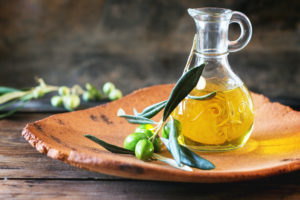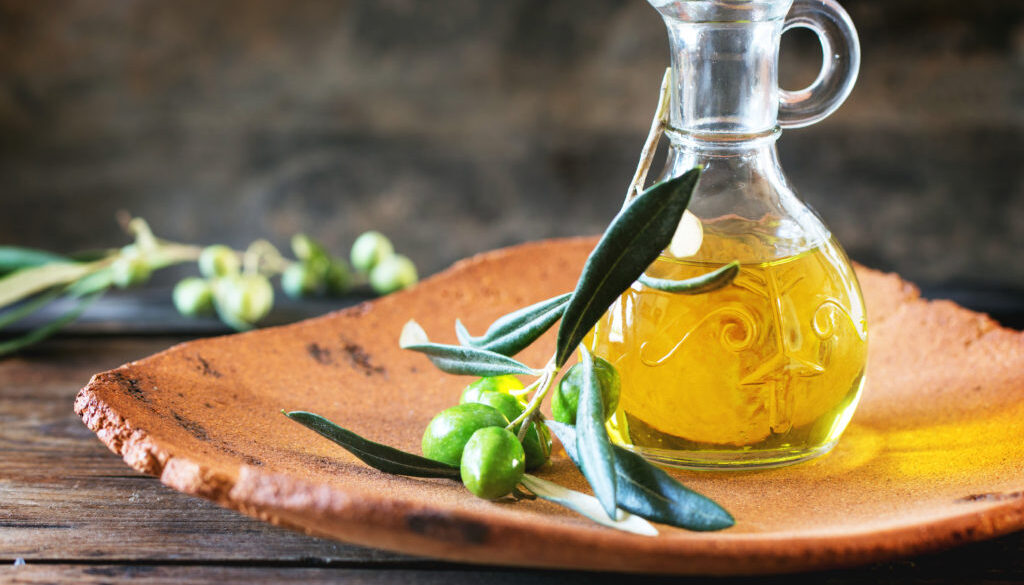Cooking with Olive Oil
 Choosing the right cooking oil is important at any age. When substituted for saturated fats, monounsaturated fats, such as those found in olive oil, can help to reduce your risk for heart disease. In addition to being a source of monounsaturated fat, extra-virgin olive oil is also high in antioxidants called polyphenols that have been linked to heart health.
Choosing the right cooking oil is important at any age. When substituted for saturated fats, monounsaturated fats, such as those found in olive oil, can help to reduce your risk for heart disease. In addition to being a source of monounsaturated fat, extra-virgin olive oil is also high in antioxidants called polyphenols that have been linked to heart health.
SEAFOOD:
Sauté or grill shrimp and fresh vegetables extra virgin olive oil, then sprinkle with balsamic vinegar for a rich Mediterranean-style flavor.
VEGETABLES:
Sauté or grill sliced, parboiled potatoes in extra light tasting olive oil until golden brown. Season with herbs and a dash of red wine vinegar instead of salt.
POULTRY:
Rub whole chicken or turkey with pure olive oil before roasting to seal in natural flavors.
CONDIMENTS:
Use extra virgin olive oil on bread or toast, instead of spreading butter or margarine. Enjoy it on sandwiches, instead of mustard or mayonnaise.
DESSERTS:
Use pure olive oil or extra light tasting olive oil in your favorite cake recipes or cake mixes for extra moistness.
STORAGE:
Olive oil has a shelf life of up to two years when stored away from light and heat in an airtight container.
FROZEN FOODS:
Before baking, brush your favorite olive oil on pizzas or other freezer-to-oven foods to seal in moisture.



